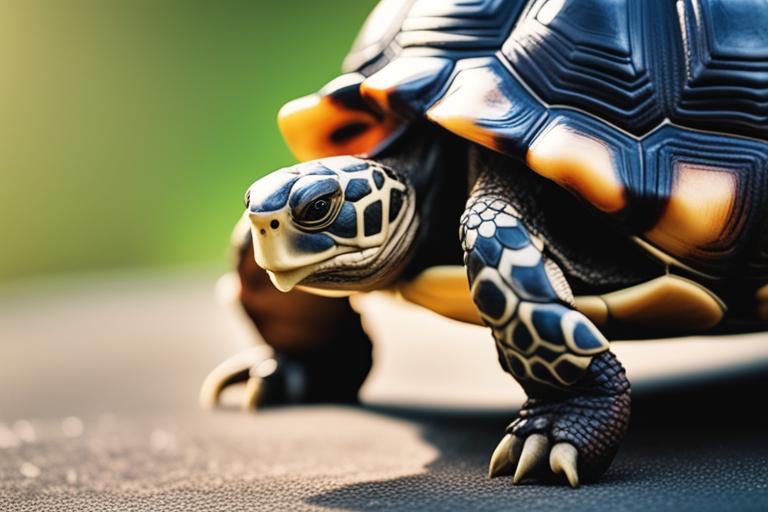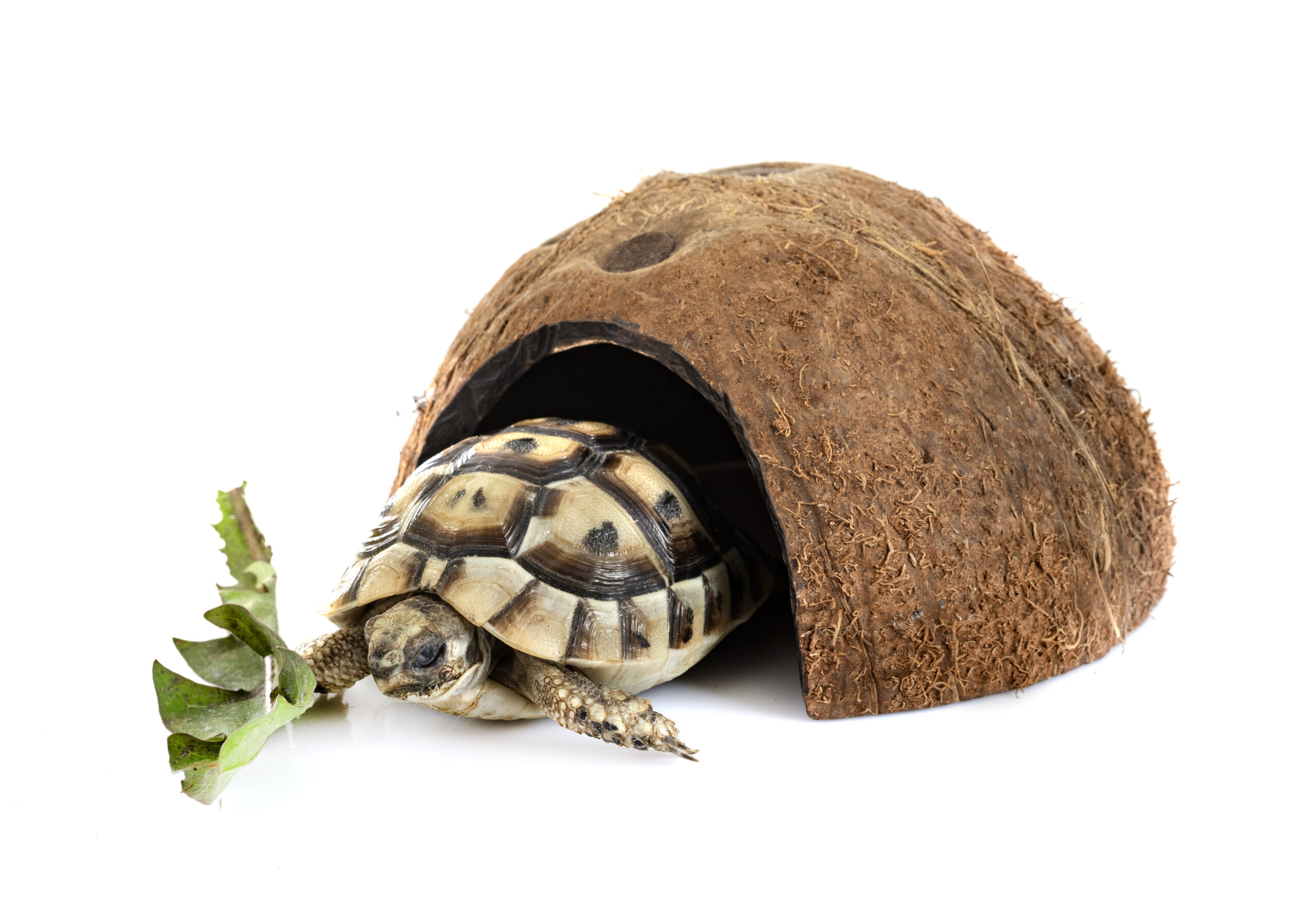If you’re wondering whether tortoises are fast, the short answer is no. Tortoises are not known for their speed, but rather their endurance. In this article, we will explore the topic of tortoise speed, including how fast they can go, what factors affect their speed, and why speed is important for their survival and well-being.

Tortoise Speed Facts
The average speed of a tortoise is about 0.2 miles per hour, which is incredibly slow compared to most animals. However, this is to be expected as tortoises are not built for speed. They are heavy, slow-moving creatures that are designed for endurance, not sprinting.
Comparing tortoise speed to other animals can be tricky, as it depends on the context. For example, compared to a human walking, a tortoise can seem fast. However, compared to other reptiles, tortoises are relatively slow. Some species of lizards, for example, can run at speeds of up to 18 miles per hour.
The fastest tortoise species is the African spurred tortoise, which can reach speeds of up to 0.3 miles per hour. The slowest tortoise species is the Galapagos tortoise, which has a top speed of around 0.1 miles per hour.
Tortoise Speed Facts
- Tortoises are generally slow creatures, with average speeds ranging from 0.17 miles per hour to 0.5 miles per hour.
- Factors such as age, size, species, habitat, and health can affect a tortoise’s speed. The fastest tortoise species is the African spurred tortoise while the slowest is the Galapagos tortoise.
- Tortoise racing is unethical and can have negative effects on tortoise health.

Factors That Affect Tortoise Speed
There are several factors that can affect a tortoise’s speed. Age, size, species, habitat, and health can all play a role in how fast a tortoise can move. Younger tortoises tend to be more active and faster than older tortoises, as they have more energy and are still growing. Smaller tortoises are also generally faster than larger ones, as they have less weight to carry.
Different species of tortoise have different speeds, as well. Some species are naturally faster than others, depending on their habitat and evolutionary history. For example, tortoises that live in open grasslands may be faster than those that live in dense forests.
A tortoise’s health can also impact its speed. A sick or injured tortoise may move more slowly than a healthy one, as it has less energy and may be in pain. Additionally, tortoises that are overweight or obese may also move more slowly, as they have more weight to carry.
Benefits of Tortoise Speed
While tortoises may not be known for their speed, it’s still an important aspect of their survival in the wild. A tortoise’s speed can help it find food, escape predators, and avoid danger. For example, if a tortoise spots a predator approaching, it can use its speed to move out of harm’s way. Additionally, a tortoise’s ability to move quickly can help it find food, as it can cover more ground in search of vegetation.
Speed is also important for a tortoise’s health and well-being. Regular exercise, including movement at a moderate pace, can help keep a tortoise’s muscles and joints healthy. Movement can also help prevent obesity and other health issues that can arise from a sedentary lifestyle.
The Ethics of Tortoise Racing
While tortoise racing may seem like a fun activity, it’s important to consider the ethics of this practice. Tortoises are not naturally built for speed, and forcing them to race can be stressful and harmful to their health. Additionally, racing tortoises may be exposed to harsh conditions, such as extreme temperatures or rough terrain, that can further harm their well-being.
If you are considering racing tortoises, it’s important to do so in a responsible and ethical way. This means providing proper care and training for the animals, as well as ensuring that they are not put in harm’s way.

Tortoise Exercise
While tortoises may not move quickly, they still need regular exercise to stay healthy and active. The best types of exercise for tortoises include walking, climbing, and swimming. These activities help keep their muscles and joints healthy, and can also provide mental stimulation.
It’s important to provide your tortoise with enough exercise, but not too much. Overexertion can be harmful to their health, and can lead to fatigue or injury. It’s also important to provide a safe and secure environment for your tortoise to exercise in, to prevent escape or injury.
Personal Experience: The Importance of Tortoise Exercise
As a tortoise owner, I’ve learned firsthand just how important exercise is for these slow-moving creatures. My pet tortoise, Henry, was always a bit sluggish and lacked energy, even when he was young. I soon realized that he wasn’t getting enough exercise.
I started taking Henry out of his enclosure for daily walks around the yard, letting him explore and move at his own pace. I also provided him with a variety of obstacles to climb over and under, such as rocks and logs.
Over time, I noticed a significant improvement in Henry’s overall health and energy levels. He was more active, alert, and seemed to enjoy his walks and obstacles. Additionally, his shell became stronger and healthier, and his appetite increased.
It’s important to note that too much exercise can be harmful to tortoises, particularly if they are not used to it. It’s important to start slow and gradually increase the amount of exercise they receive. Additionally, providing a balanced diet and a suitable living environment is crucial for their overall health and well-being.

Conclusion
In conclusion, tortoises are not known for their speed, but rather their endurance. Factors such as age, size, species, habitat, and health can all impact a tortoise’s speed, and regular exercise is important to keep them healthy and active. Tortoise racing can be harmful to the animals, and therefore should be approached with caution. By providing proper care and attention, you can help ensure that your tortoise is healthy and happy for years to come.
| Tortoise Species | Average Speed (mph) | Top Speed (mph) |
|---|---|---|
| African spurred tortoise | 0.25 | 0.3 |
| Galapagos tortoise | 0.07 | 0.1 |
| Red-footed tortoise | 0.2 | 0.25 |
| Russian tortoise | 0.1 | 0.15 |
| Sulcata tortoise | 0.3 | 0.35 |
FAQ
Who is the fastest tortoise?
The Hermann’s tortoise is known to be the fastest.
What is the top speed of a tortoise?
The top speed of a tortoise is typically around 0.17 mph.
How do tortoises move so slowly?
Tortoises have a slow metabolism and heavy shell.
Who says tortoises are slow and boring?
Some people may have misconceptions about tortoises.
What are the benefits of owning a tortoise?
Tortoises are low-maintenance and can live for decades.
How can I convince my family to get a tortoise?
Explain the benefits of owning a tortoise and offer to take care of it.







